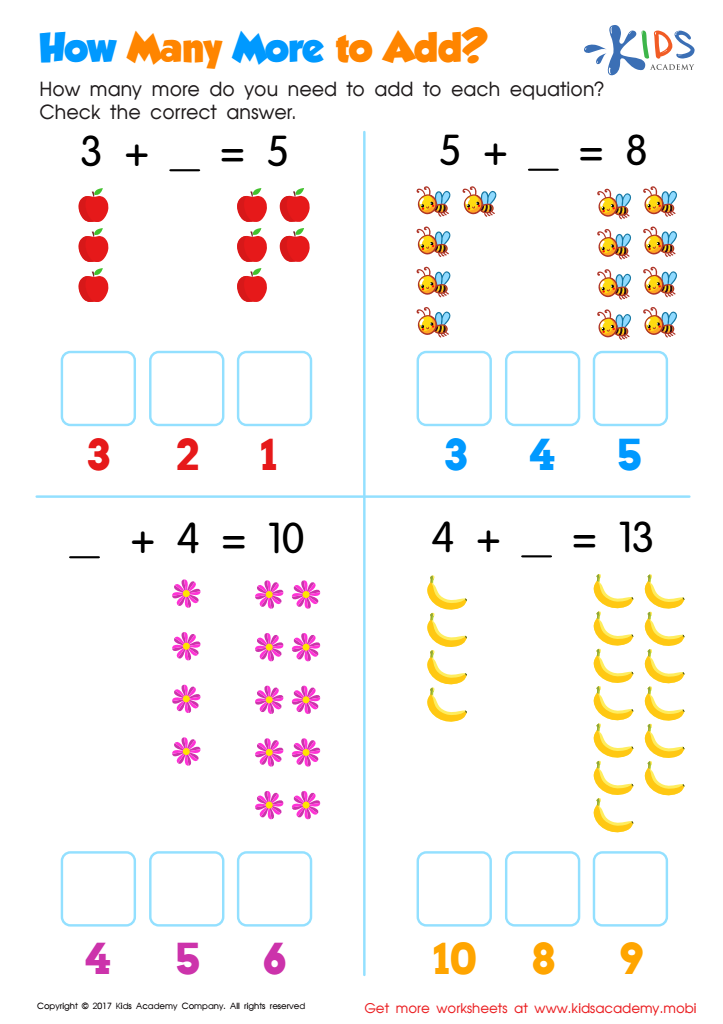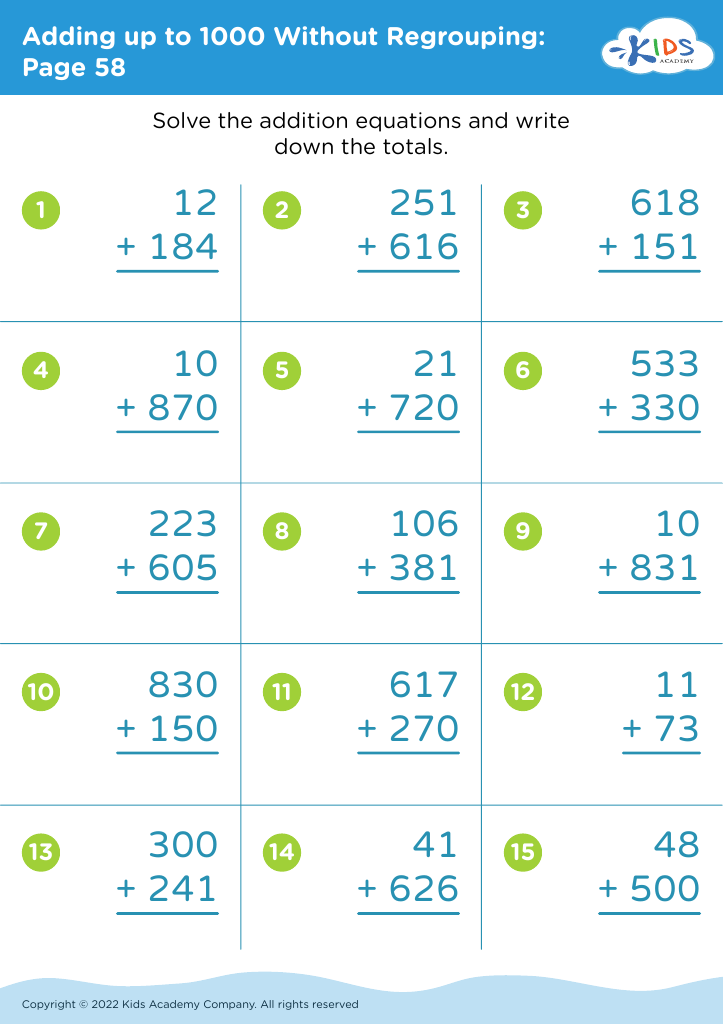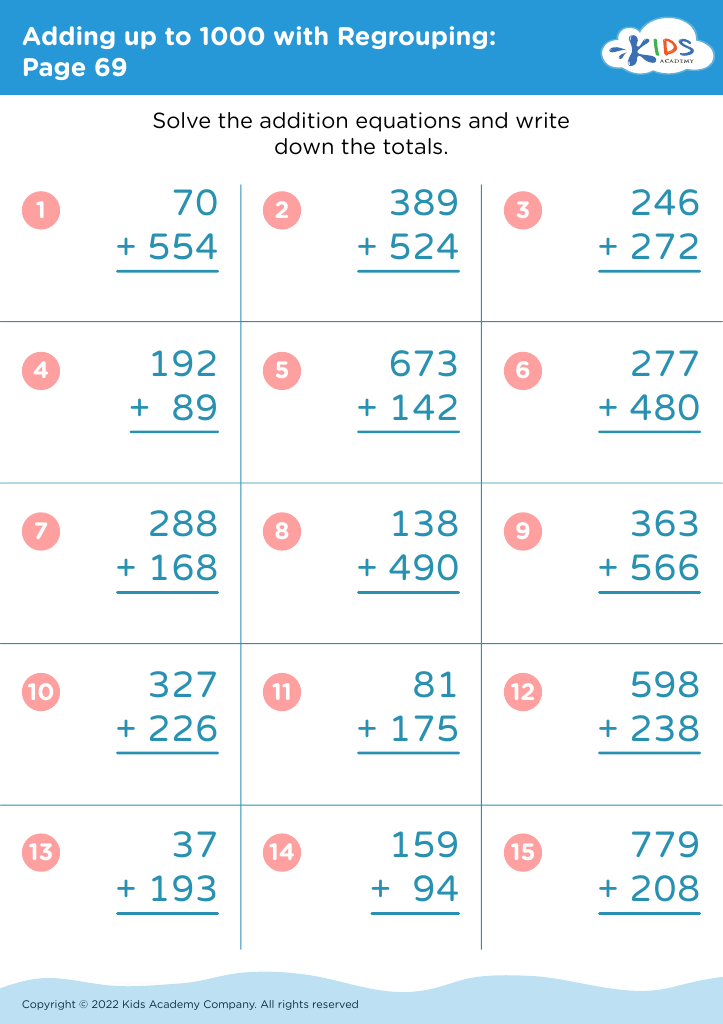Comparison Skills Addition & Subtraction Worksheets for Ages 4-7
4 filtered results
-
From - To
Unlock your child's potential with our engaging Comparison Skills Addition & Subtraction Worksheets, designed for ages 4-7! These worksheets provide fun and interactive exercises that help young learners develop critical comparison skills by analyzing numbers and their relationships. Children will practice identifying greater and lesser values, enhancing their understanding of basic math concepts through hands-on activities. Our carefully crafted resources cater to early learners' diverse needs, making math both enjoyable and effective. Perfect for home or classroom use, these worksheets will equip your child with foundational skills essential for future success in mathematics. Start building confidence and understanding today!


How Many More to Add Worksheet
Comparison skills in addition and subtraction are vital for children ages 4-7, as they serve as the foundational building blocks for mathematical understanding. At this young age, children are not only learning basic arithmetic but are also developing critical thinking skills that will support their overall cognitive development. By fostering comparison skills, children learn to analyze numbers and quantities, helping them to recognize patterns and relationships between different sets of items. This not only enhances their math abilities but also encourages problem-solving skills that are applicable in real-life situations.
Parents and teachers play a crucial role in nurturing these skills. Engaging children in activities that involve comparing groups or numbers can make learning interactive and fun. For instance, using everyday objects, such as toys or fruit, allows children to see subtraction as "taking away" or addition as "putting together" in tangible terms. Furthermore, these skills can build confidence in young learners, making them more willing to take risks in solving problems. Ultimately, developing strong comparison skills in early education lays the groundwork for future mathematical concepts, preparing children for more complex topics and fostering a lifelong appreciation for math. In today’s world, these skills are essential for navigating various academic and daily challenges.


 Assign to My Students
Assign to My Students
















